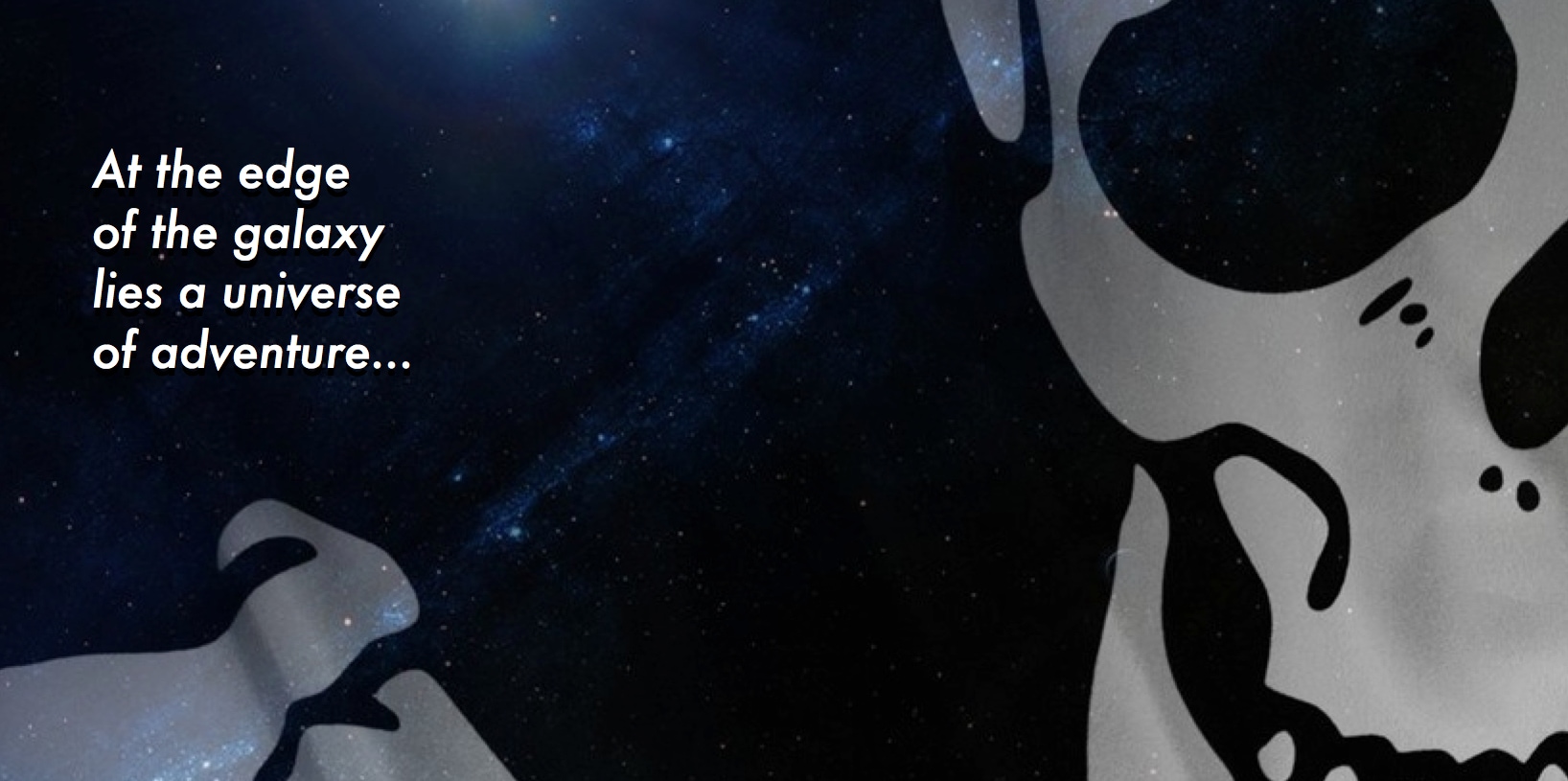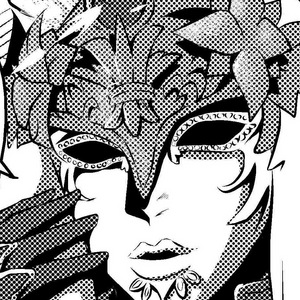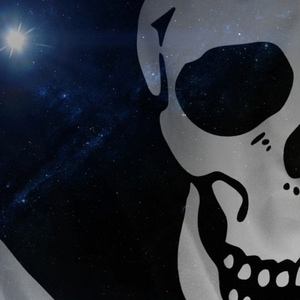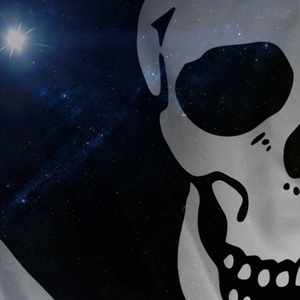In 2335 a historic motion was passed by the newly-formed Galactic Union. The A.D. (Anno Domini) calendar was abandoned, serving to indicate that humanity was finally willing to undertake a momentous step forward. The indescribable horrors and staggering loss of life witnessed during the Galactic War had caused a paradigm shift, changing humanity’s outlook on the galaxy and, more importantly, on ourselves. The call to discard ideological differences, territorial disputes, and wanton strife resonated through the stars, culminating in a demand for galactic unity. For the first time in humankind’s tumultuous history, there was a collective understanding, a singular desire for advancement, enrichment, and the betterment of civilization. Thus, the Galactic Century (G.C.) began.
Sadly, stark reminders of life before the new era can still be observed in abundance. One need only to travel to any of the Waste Regions to witness, first hand, the testaments of humanity’s grim past. Though, maybe we are fortunate that these places continue to exist in some fashion; for perhaps it is there, in those floating graveyards, that we can forever be reminded of what terrible destruction humankind is truly capable of.
Rigel Nebulos, Spacefarers: A Generational Timeline
Waste Region 07 // January 14th, 086 G.C.
As impossible as it may seem, outer space appeared to be filled; the backdrop of starlight had been blotted out. An accumulated mass of antiquated war machines, battered starship wreckages, and damaged machinery coasted in the weightless zero-gravity environment. Corpses still encased in their astrosuits shifted among the remains.
To some the Waste Regions were a hovering junk yard, to others it was a celestial cemetery—and to a select few, it was a treasure trove.
The Eris’s black hull plowed through the remains, parting a section of the forgotten vestiges. The Eris was a formidable starship, sleek and angled. Lengthwise it was imposing, longer than two Galaxy Enforcement shuttles together. The nose of the ship was curved down, like the beak of a predatory bird. The thick wings were angular and jagged, each expanding outwards three times the ship’s width. The Eris possessed eight rear thrusters, four large center ones surrounded by four smaller propulsion engines. There were few starships that the Eris could not outrun.
Radnock Discordia’s cold, calculating eyes retained no semblance of life. From a distance they could be mistaken for the eyes of man but, up close, they were soulless, unflinching portals, gateways to death. He set his stony gaze to the glittering hologram that projected from the device in his hand.
A holographic image of Orion Darkstarr’s face flickered beneath the bold WANTED headline. The posted bounty had been in the millions, but Radnock skimmed over it. Catching his attention were the supplementary notes. Possible whereabouts: Titan, Radnock read to himself. A twisted grin etched itself across his chapped lips.
“Darkstarr,” he whispered under his breath. A fleeting spark of life gleamed in his dead eyes. Radnock straightened his crooked posture, propping himself upright in the command chair. His large muscular physique tightened beneath his raggedy clothes. Radnock was an intimidating sight, at one time he may have been handsome, but that time had long passed. His face was now mauled with deep battle scars, disfigurements, and pockmarks. Radnock’s short, cropped hair looked as if it had been cut by a blind barber and his well-toned arms were covered in an interweaving mess of poorly carved tattoos. Despite only being in his early-thirties, it would have been impossible to guess Radnock’s age; the tattered features of his face made him appear far older.
Radnock’s thousand-yard stare fixed onto the three men who stood with their backs to him, each operating a separate control panel in the sizable cockpit. Unlike most starships, there had been no chairs behind the controls, forcing the trio to stand.
Ovid was the shortest of the three men, a troll-like man with a permanent secretion of drool oozing down his chin. His teeth were gone, replaced by titanium steel fangs that could chew through human bone and most metal with relative ease. He manned the navigational displays.
Darsod stood at the center console, piloting the Eris. His body was a patchwork of ragged flesh and bionic replacements, making him more machine than man. His right eye was missing, in its place an artificial substitute; his left arm and right leg were outfitted with bionic replacements. Beyond the exterior augmentations few would know that Darsod’s bodily interior had also been swapped with mechanical counterparts, ranging from cybernetic lungs, kidneys, liver, steel-enforced bones, and synthetic plasma serving for blood. Artificial enhancement addiction had been a media sensation several years ago, due to its allure among young starlets and corporate heiresses. Still, none of them held a candle to Darsod.
At the left, operating both the weapon systems and stardrive, was Merak. Covered in third-degree burns, his face had been reshaped into a twisting, misshapen contortion of flesh. His ears, lips, and nose had been seared away, along with any form of facial hair or features.
“Avast, a wasteland of death,” Ovid gleefully hissed, stabbing a finger into the monitor display—the ship’s exterior camera projected the floating wreckage around them onto the screen. “All of it, ours for the taking!”
Radnock was repulsed by the sight. His upper lip reared back, exposing the yellowed, stained teeth underneath. He was a wild dog ready to attack. A series of near inaudible pops and cracking sounds went unnoticed beneath the control panel’s random bleeps and chirps. A spider web of fractures and splits multiplied across the holographic transmitter in Radnock’s tight grip. He squeezed, shattering the device. The splintered pieces fell between his fingers.
“No!” Radnock snarled, commanding all eyes on him with his boisterous tone. “I’ll no longer scurry around in the dark, content with grasping at scraps like some diseased sewer rat.”
Ovid protested, “But Radnock, there is much to—”
“There is nothing here,” Radnock shot back.
“Darkstarr has the cargo now,” Darsod grumbled. “Maybe we should just forget it.”
The cockpit grew silent, even the ambient noise of the control panel seemed to fade away. Ovid and Merak exchanged worried glances.
Darsod’s breathing quickened, followed by a cold sweat enveloping his body—at least the natural, non-mechanical parts. He had overstepped his boundaries. He had made an attempt to dissuade the hatred that fueled Radnock’s existence: Orion Darkstarr.
Radnock’s entire body seemed to suffer from a chain of minor convulsions; if looks could kill, Darsod would have endured the worst death imaginable.
“Forget?” Radnock asked, making no attempt to conceal his anger. “Forget, you say? No, I could never forget. You don’t forget hell, do you, Darsod?”
The nervous tension that gripped Darsod forbade him from uttering a syllable. His jaw simply clicked, letting out the weak chatter of teeth.
“Do you, Darsod?!” Radnock pressed, spit flying from his mouth.
Darsod swallowed hard, trembling with fear. “No…no, captain.” His voice wavered in an effort to articulate the words.
“Oh, I’ve seen hell, gentlemen,” Radnock continued, resuming an unnaturally calm posture after his previous explosion. “I’ve lived in it for seven long years.”
For a long uncomfortable moment, the crew watched as Radnock gazed off into nothingness. His thoughts were removed from the ship, from the present frame of time, from reality; although he physically sat in the command chair, he was not there in mind. Then, as quick as he faded out, Radnock snapped back with a perverse grin.
“Set a course for the Draxus system,” he ordered. “Take me to Titan.”
The trio shuffled back around, taking control of their respective posts.
A warped sense of excitement Radnock hadn’t felt in years coursed through him. I’m coming back, old friend.












Comments (0)
See all